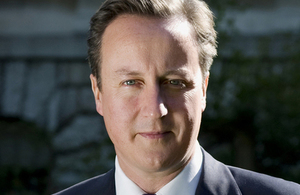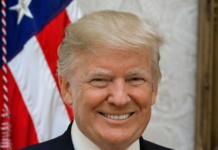Prime Minister David Cameron will on 12th May, host the Anti-Corruption Summit in London Downing Street have said.

The summit is expected to galvanise a global response to tackle corruption. As well as agreeing a package of actions to tackle corruption across the board, it will deal with issues including corporate secrecy, government transparency, the enforcement of international anti-corruption laws, and the strengthening of international institutions.
In the aftermath of the humongous revelations by Panama Papers, it is expected that world leaders will take this Anti-Corruption Summit very seriously.
It will be the first summit of its kind, bringing together world leaders, business and civil society to agree a package of practical steps to expose corruption so there is nowhere to hide, punish the perpetrators and support those affected by corruption and drive out the culture of corruption wherever it exists according to Downing Street.
Expected in attendance are leaders of some of the African countries where corruption has crippled the economy, leading high numbers of citizens to risk migrating through desperate routes to Europe.
Development in Africa’s most populous black nation, Nigeria has suffered serious setbacks in spite of huge revenue earnings from oil exports due to corruption.
Nigeria it is believed will use the summit to canvass support from Britain in sanctioning looters who have stolen from government coffers and are hiding away in the UK.
Nigeria’s Vice President, Professor Yemi Osinbajo (SAN), recently disclosed that the country has lost a sum of $15bn to corruption in security equipment procurement.
He said, “We need to have a sustained fight against corruption. This country simply cannot sustain the level of public sector corruption that has bedevilled us for so many years. If you look at the sheer amount of money that has been lost to the various cases of corruption, you will find out that far too much has been lost. Our country’s external reserves stand at $27bn few days ago, but the total amount lost just to corruption in the provision of security equipment in the military is close to $15bn, which is more than half of current reserves of the country.”
The summit will be preceded by a conference on 11 May for leaders in civil society, business and government who are championing the fight against corruption.
Since 2010, the UK government has led the way on tackling tax evasion and tax avoidance, bringing in more than £2 billion from offshore tax evaders, being the first member of the G20 to establish a public central registry of company beneficial ownership information which will go live in June 2016, and pushed its G7 and G20 partners to do the same, introduced some of the world’s strictest legislation on bribery through the Bribery Act 2010 making it a criminal offence for a company to fail to prevent a bribe being paid and co-chaired a UN panel that put tackling corruption at the heart of the new UN Development Goals and transformed the way the international community fights poverty.
The Prime Minister David Cameron while making a statement in the House of Commons on the Panama Papers last month said, “next month, we will seek to go further, using our Anti-corruption Summit to encourage consensus not just on exchanging information but actually on publishing information, putting it in the public domain as we are doing here in the UK.
Because we want everyone with a stake in fighting corruption from law enforcement, to civil society, to the media to be able use this data and help us to root out and deter wrongdoing.
Next, we will take another major step forward in dealing with those who facilitate corruption. Under current legislation it is difficult to prosecute a company that assists with tax evasion. But we are going to change that.
So we will legislate this year for a new criminal offence to apply to corporations who fail to prevent their representatives from criminally facilitating tax evasion.
Finally, we are providing initial new funding of up to £10 million for a new cross-agency taskforce to swiftly analyse all the information that’s been made available from Panama and to take rapid action”.
Mr. Cameron said, “the taskforce will include analysts, compliance specialists and investigators from across HM Revenue & Customs, the National Crime Agency, the Serious Fraud Office and the Financial Conduct Authority”.
The UK government is currently seeking a change in legislation reforms on the suspicious activity reports (SARs) regime to entities responsible for money laundering and terrorists financing.
Some of the potential changes proposed will include: new ways to improve data sharing between private sector organisations, the creation of new powers to allow money to be seized and the requirement for individuals to declare their sources of wealth.










